Spiral conversations about working with Diversity in Gender, Body, Kinship & Sexuality
Contact: Dr Gávi Ansara, Convenor, PACFA Diversity in Gender, Body, Kinship & Sexuality Interest Group (GBKS)
Diversity means all of us. However, not all of us have been included, prioritised, and valued. The GBKS Interest Group focuses specifically on ensuring that those forms of gender, body, kinship, and sexuality lived experience that have been excluded or marginalised can achieve ongoing and equitable inclusion.
Locally and around the world, including within PACFA, there has been a shift away from speaking in generalities and lumping together lived experiences under Anglocentric and Eurocentric umbrella categories like ‘LGBTQIA+’.
This is part of an anti-racist, decolonial shift away from a one-dimensional approach and the overgeneralised use of umbrella categories, toward recognition of nuance, depth, sanctity, and multiplicity of voices across the domains of gender, body, kinship, and sexuality.
This series of spiral chats featuring key collaborators will explore key themes in contemporary practice with people with gender, body, kinship, and sexuality lived experiences that have been excluded or marginalised within our professions.
Spiral Chat 1: 10:00 am-11:15 am. Moving beyond the Myth of the Alphabet Soup
Spiral Chat 2: 11:30 am – 12:45 pm. Addressing racism, colonisation, and ethnocentrism in professional models of GBKS lived experience
Spiral Chat 3: 1:45 pm-3:00 pm. Queer kinships and GBKS community care
Spiral Chat 4: 3:15 pm-4:30 pm. Good intentions, harmful practices: Making the shift from performative allyship toward accountable solidarity
Day 2 Key Collaborators:
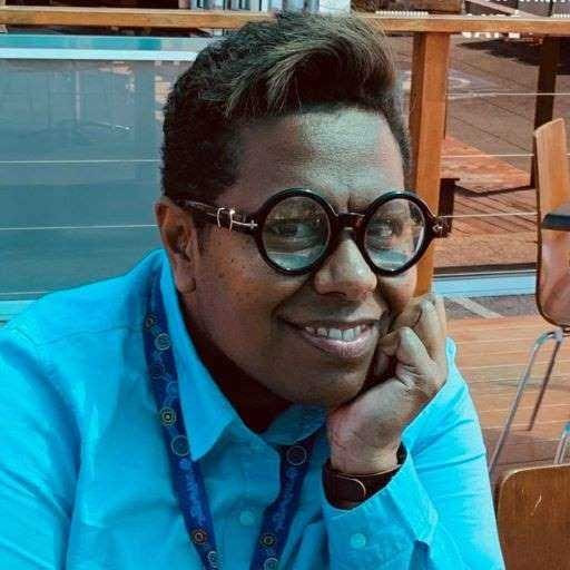
Tanya Quakawoot (they/them)
Tanya is a Dharumbal Blak queer person based in Meeanjin on Turrbal and Yuggera Country, which is colonially known as “Brisbane, Queensland”.
Tanya is a postgraduate-trained and practising Indigenous Trauma Recovery Specialist of Aboriginal and South Sea Islander descent. Tanya is currently working in project management in the violence prevention sector leading advocacy and change for improved recovery pathways for Aboriginal and Torres Strait Islander people experiencing domestic and family violence. Tanya has worked in the public sector for more than 25 years and specialises in ethical leadership practices.
Tanya completed a Bachelor of Justice majoring in Critical Criminology. They are the Co-founder of IndigiLez, a leadership and support group for Aboriginal and Torres Strait Islander and South Sea Islander lesbians and non-binary people. Tanya is also a Cultural Adviser connected with the LGBTI Legal Service (Meeanjin) and Rainbow Families (Turrbal and Yuggera Country).
Tanya is passionate about social justice, Blak queer politics, ethical governance, and health advocacy.
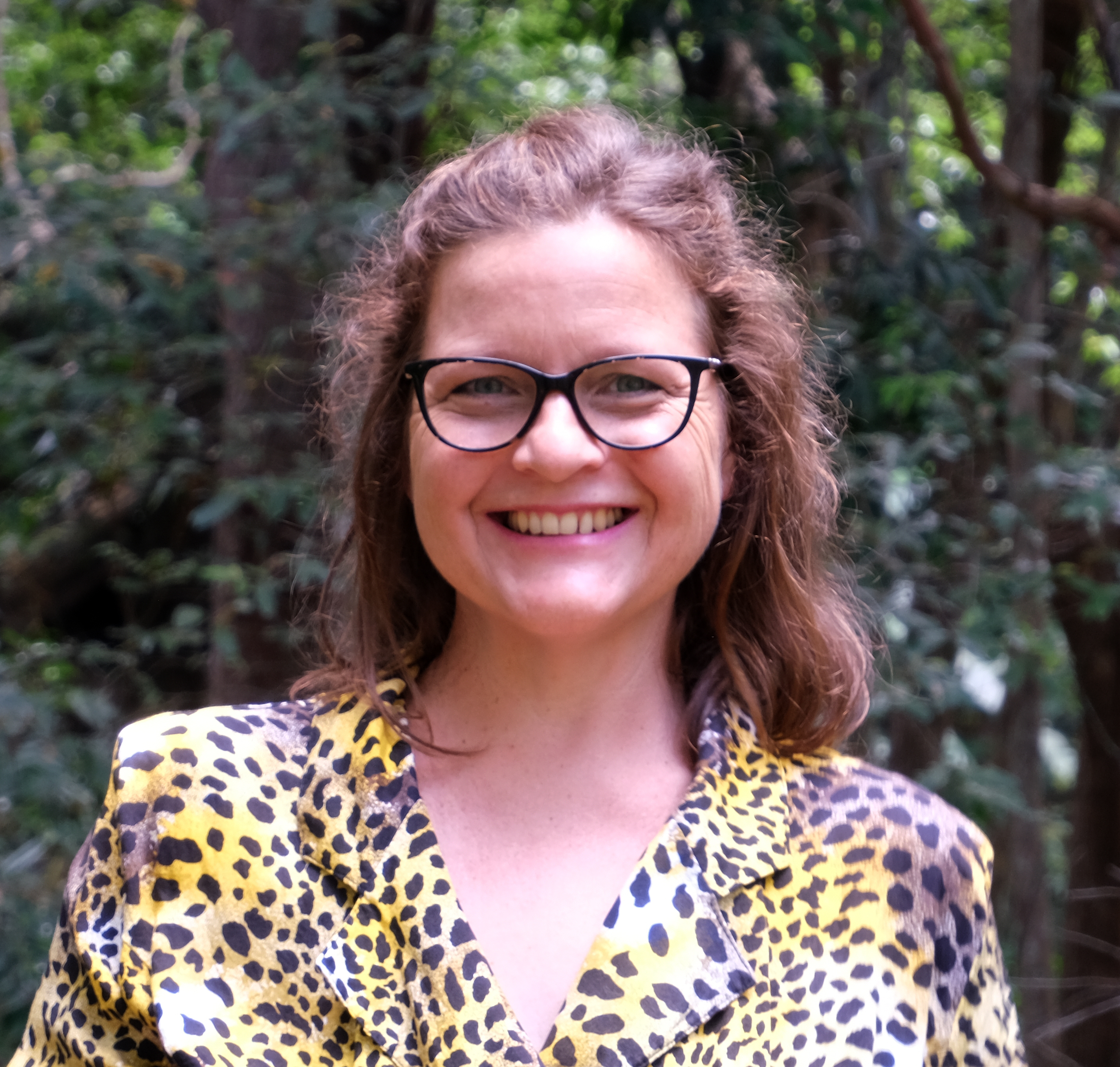
Bonnie Hart (she/her)
Bonnie is the Deputy Executive Director of Intersex Human Rights Australia living and working on unceded Kabi Kabi Country. Bonnie is an intersex woman, peer worker, and systemic advocate working with and within the intersex community to advocate for legislative protections and improved access to affirmative, rights-based health, and mental health services. She is the designer and Manager of InterLink, Australia's first community-controlled intersex psychosocial support program providing free individual and group counselling plus care coordination to people with innate variations of sex characteristics of any age, and parents and caregivers of young people with intersex variations across the country via telehealth.
Bonnie nurtures intersex community connections and a burgeoning intersex peer workforce. Bonnie has a long-time relationship with Intersex Peer Support Australia, having held several leadership roles and supporting people with many different intersex variations, parents, family members, and partners of intersex people. She is passionate about engaging and connecting community through annual support retreats and coordination of community development initiatives such as the gathering in 2017 that produced the Darlington Statement, an Aotearoa/New Zealand and Australian intersex community consensus statement.
Bonnie advocates for Australian legislative and human rights reform through writing submissions to government, participating on expert advisory groups for government and NGOs work on intersex issues. Bonnie is also an early career academic, PhD candidate at the University of Southern Queensland and intersex educator, developing affirmative practice resources and regularly providing sector-specific training through the YellowTick initiative.
Bonnie's life prior to intersex awakening was as an interdisciplinary artist, experimental musician, and filmmaker. The documentary she made with her sister, Orchids: My Intersex Adventure, broadcast their family secret internationally, propelling Bonnie to speak publicly about intersex to raise awareness and challenge the systems that oppress people with innate sex characteristics that vary from biomedical stereotypes for female or male bodies.
Early experiences as the youngest child in a ninth-generation White European immigrant family living in North Queensland provided early proxy exposure to controlling colonial, hegemonic forces through the overt violence, racism, sexism, and homophobia pervasive in the community. This landscape was juxtaposed on her educated, able-bodied, middle-class privileges and secret life of clinical abnormality – doctors’ visits, genital examinations, and uncomprehendable words lacking informed consent.
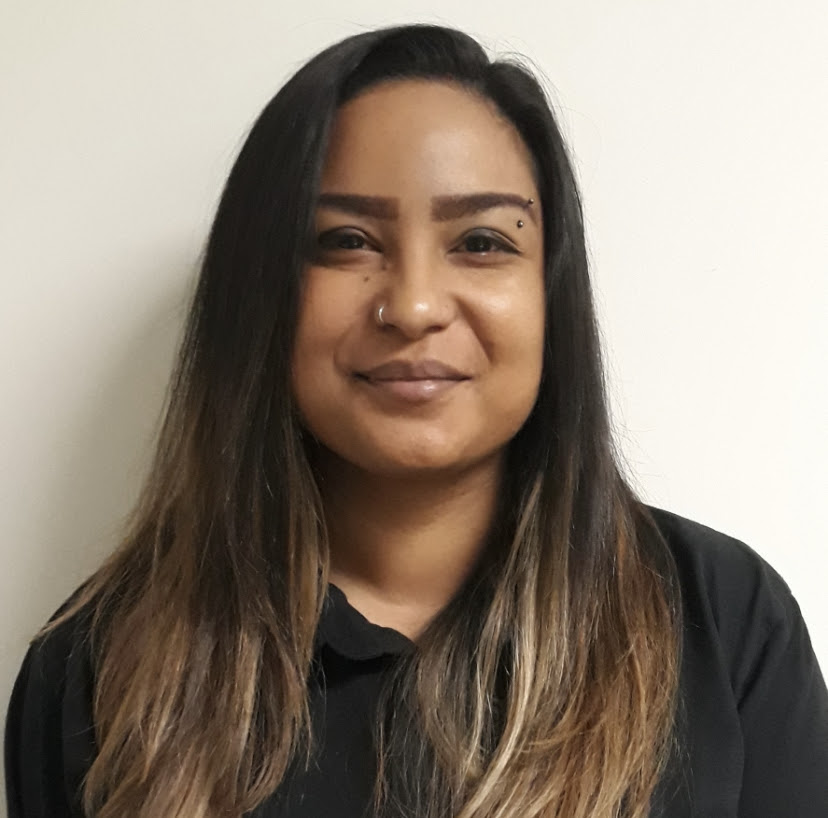
PJ Menon (they/she)
PJ is a queer person of colour living in Boorloo (Perth), Western Australia. PJ is a mental health clinician who has worked extensively with headspace Midland, specializing in work with young people 12-25, as well as within private practices across Australia. PJ has recently taken on the role of clinical educator, providing supervision and developing education pieces meaningfully when working with new graduates and students.
PJ supports organisations in creating more inclusive workspaces by facilitating training and resource distribution, collaborating with other agencies to create safe spaces specific to LGBTIQA+ youth, and consulting around issues relevant to LGBTIQA+ and culturally diverse young people. PJ completed a Bachelors degree in Psychology, a Masters of Counselling and Psychotherapy, and an Advanced Graduate Diploma in Psychology. They currently hold general registration as a psychologist with the Allied Health Professional Regulation Agency (AHPRA).
PJ is a queer Indian person who grew up in Malaysia before moving to Australia. Their work is informed by lived experience of interpersonal and systemic racial and queer discrimination. PJ's experiences of marginalisation exist alongside their able-bodied, sighted, hearing, verbal, literate, allistic, middle-class, and educational privilege. These experiences and privileges have led to PJ’s passion around providing spaces for those that have historically been discriminated against, dismissed and misunderstood by the psychotherapy and psychology professions. PJ regards queer kinships to be of utmost importance in their ability to remain buoyed within this work. PJ aims toward cultural humility in their practice, and is committed to the ways in which cultural humility must be upheld as a life-long practice.
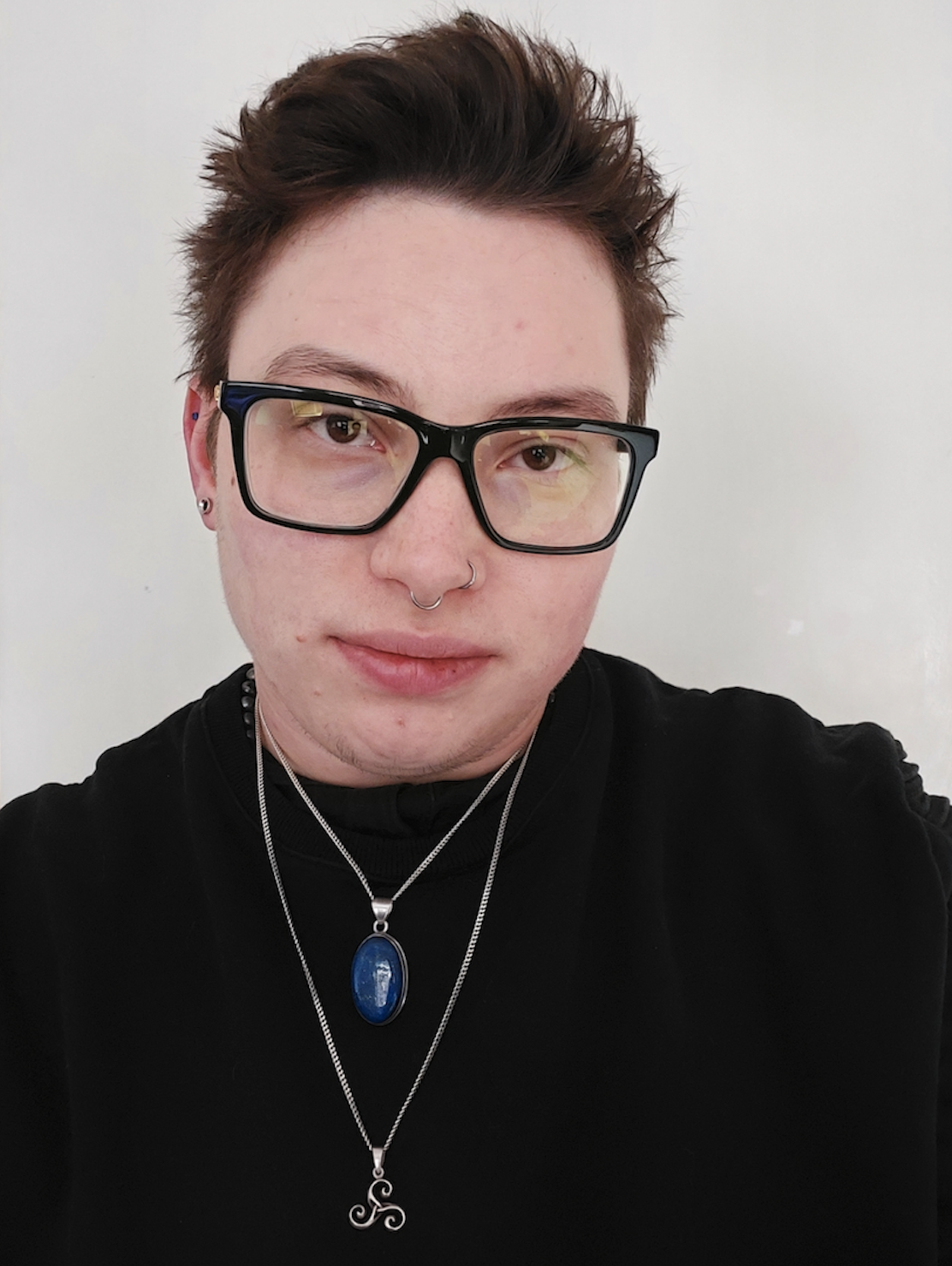
Jasz Van Gils (he/him)
Jasz is a psychotherapist with Real Talk Behaviour Therapy, a neuro-affirming private practice that rejects ABA, with a Diploma of Counselling and Foundations of Emotion Focused Therapy, and continuing ongoing study of a Bachelor of Psychological Studies.
I live, work, and study on the unceded lands of the Wurundjeri Woi Wurrung People of the Kulin Nation and pay deep respect to the Elders past and present and their ongoing custodianship of these lands, skies, and waters. As a White immigrant, I understand and acknowledge I engage with the world and systems with white privilege and benefit that is not the reality of all people.
I am a trans man with lived experience of neurodivergence and hidden disability. Navigating harmful and disempowering systems has been a reality of mine and I also acknowledge the privilege of being able to access the supports that have allowed me to socially and medically transition since moving to Naarm. It has been a great honour to give back to the trans and neurodivergent community that has been so welcoming and in turn support them with their own journeys.
I am a strong advocate for Autistic acceptance and neuro-affirming spaces and within my own practice and reject ABA while still acknowledging its legacy of trauma and continued harm for the neurodivergent community.
I aim in my work to create intersectional spaces for deep listening and respect for all peoples where they can feel heard and supported and able to exist authentically as their whole selves. My approach centers learning about my clients and their needs and goals with gentle curiosity to adapt to suit each unique person with their own circumstances. I value feedback to both deepen insights into others’ realities and to also continue to make myself and my work safer and more accessible. I also believe in the value and importance of decolonializing psychology/psychotherapy practices that move away from unjust sociopolitical inequalities and work towards anti-oppressive practices that acknowledge the power of community healing and First Peoples’ traditional cultural wisdom and healing practices.
Contact Details: Jasz Van Gils, Email: [email protected], Website: https://www.realtalkbehaviourtherapy.com/
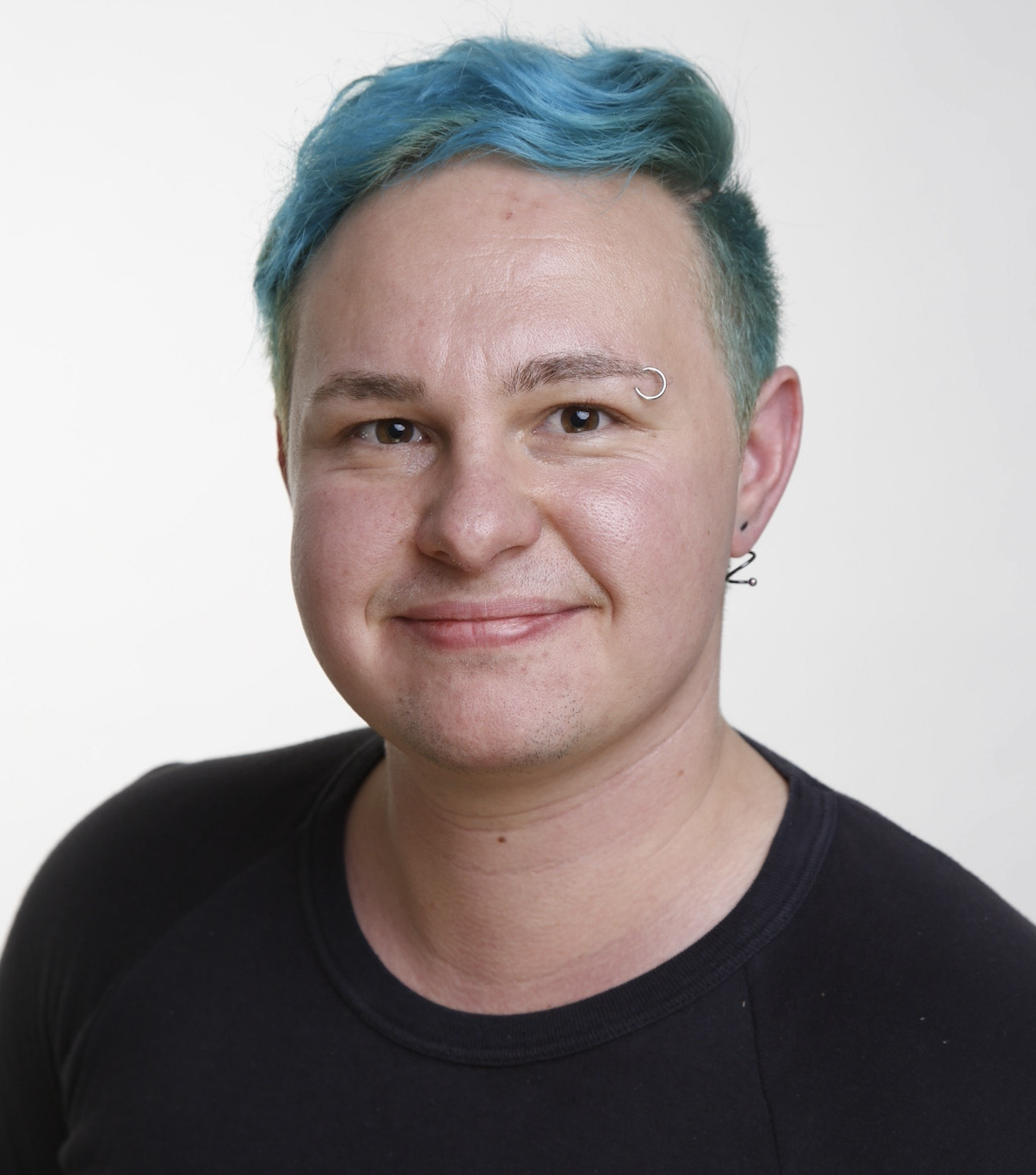
Lee Taube (they/them) is a Registered Psychologist, the Founder of the multidisciplinary health service called Trans Space, and has a university debt from acquiring the following credentials: DipLibArts, BA(Psych), GradDipPsych, MProfPsych.
Professional Bio
I live, love and work on the unceded lands of the Wurundjeri Woi Wurrung people of the Kulin Nations and long for healing and empowerment of First Nations people. While I do not want to benefit from white privilege, I acknowledge that I do benefit from moving through the world as a white person.
I was born into low socioeconomic status and am immensely grateful to now have my physical, emotional, safety, and social needs met and for the opportunities that have come to me since attending university and learning how to perform class drag. I acknowledge that I have access to healthcare, including gender affirming therapy which is both life-saving and life-enhancing, which I believe are basic rights and freedoms that all humans should be guaranteed. I feel proud to be an openly out genderqueer person and be able to use my lived experience and person-centered approaches in my work with clients, and to do research and create spaces to benefit the trans and gender diverse community to which I belong. I have co-authored peer-reviewed publications that provide clinical guidance to practitioners from a strengths-based framework, as I am dedicated to changing the disempowering trans misery narrative that exists within cisgenderism.
I utilise Emotion Focused Therapy (EFT) in my clinical client work and aim to first create safety, then use emotions as a compass to uncover unmet core needs, and realistic removal of barriers to self-determination, to take actions to meet needs, within unfair macro systems. I feel humbled to witness and share these journeys within the community that I belong to and would like to increase lateral community love.
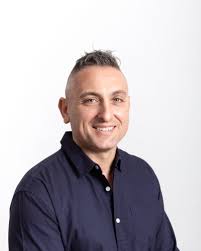
Anthony Lekkas (he/him), unceded Wurundjeri Country, Kulin Nations
I am an Accredited Mental Health Social Worker and a Relationship Counsellor with specialized training and experience in working with LGBTIQ people, minoritized relationships and families, and intimate partner and family violence in both cis-hetero-mononormative and LGBTIQ community services. I am committed to understanding how we perform and negotiate our family, romantic, love, sex, kink, play, and other relationships, as well as understanding the impact of the social, cultural, and political contexts in which they occur.
I am a Greek Australian 47-year-old bisexual, cisgender, endosex man who is culturally marginalized in an Anglocentric society while benefiting from aspects of white privilege as a lighter-skinned person. I am polyamorous and live in a multi-caregiver household with 3 children across 2 different homes.
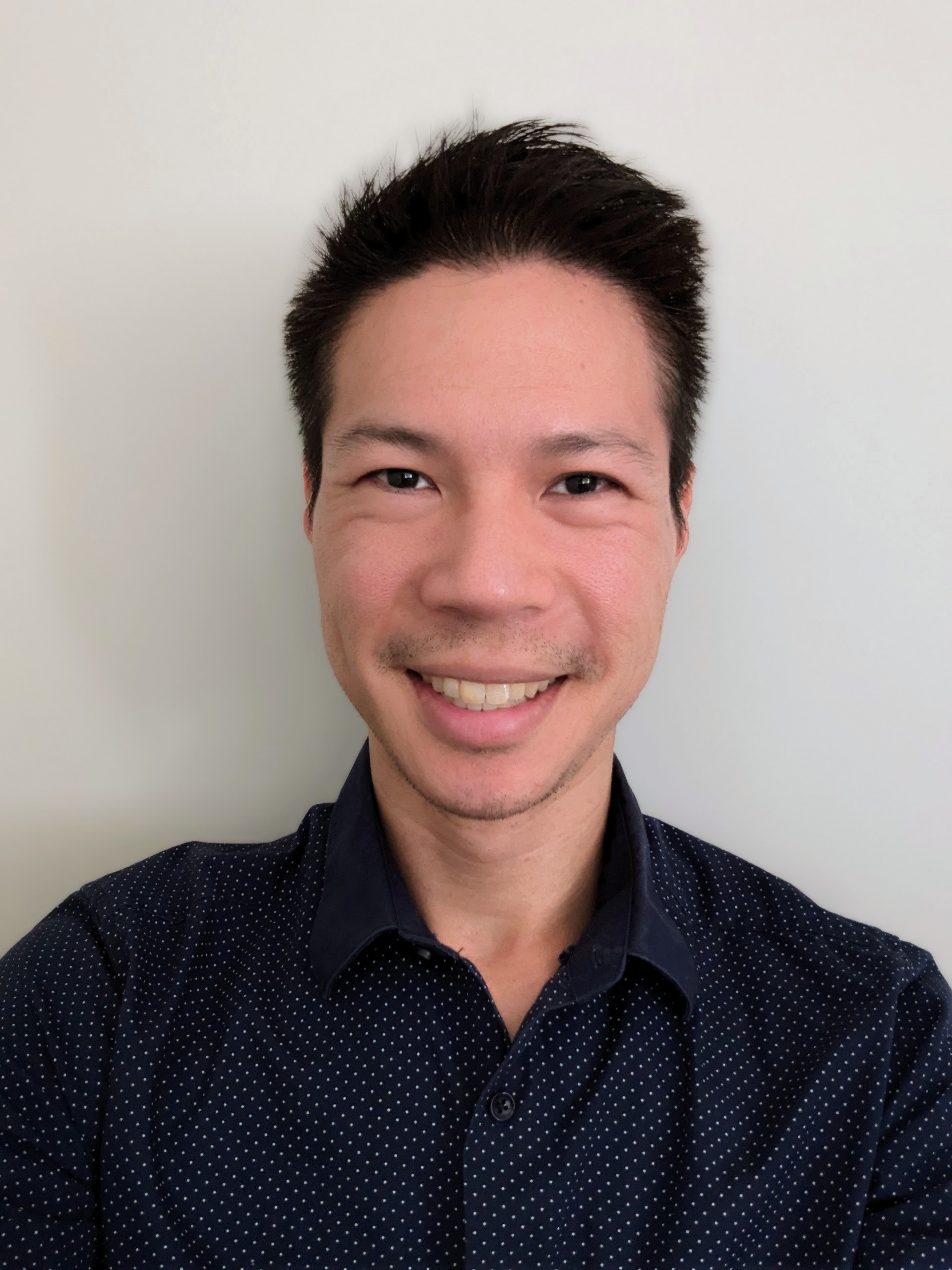
Francis Voon (he/him) (mcap, ba, grad dip ed, bth, dip bus, cpe)
Francis acknowledges that he lives, loves, and works on the unceded lands of the Gadigal and yearns for a day when the work of healing and justice especially for First Nations people is not linear but circular.
Francis is a gay, cisgender man and person of color, with lived experiences of migration, polycultural balancing, religious discrimination, ageism, racism, religiously & culturally based queerphobia, sexually racist lateral violence, intergenerational trauma, linguistic and profession-based discrimination. These experiences of discrimination and violence coexist alongside the privileges he acknowledges as cisgender, male, able-bodied, sighted, hearing, speaking, mobile, literate, lighter-skin, allistic, middle-class, city-based, anglo-centric & tertiary educated, citizenship, fluent anglophone, heteronormatively-perceived, monogamous-kinship-perceived, self-employment, easy access to health, food, technology, and resource privileges.
Francis has had access to opportunities across the multiverses of education, religious, cultural, health, not-for-profit, advocacy, queer/LGBTIQA+/rainbow/gender-bodily-kinship-sexuality celebratory, diversity-friendly, nonviolence, and performing arts. He enjoys educating, supervising, and presenting to colleagues and university students on issues of psychotherapy, intersectionality, and social justice. As a psychotherapist & supervisor, his interests are somatic, psychodynamic, Jungian, Gestalt, narrative, existential, and creatively expressed.
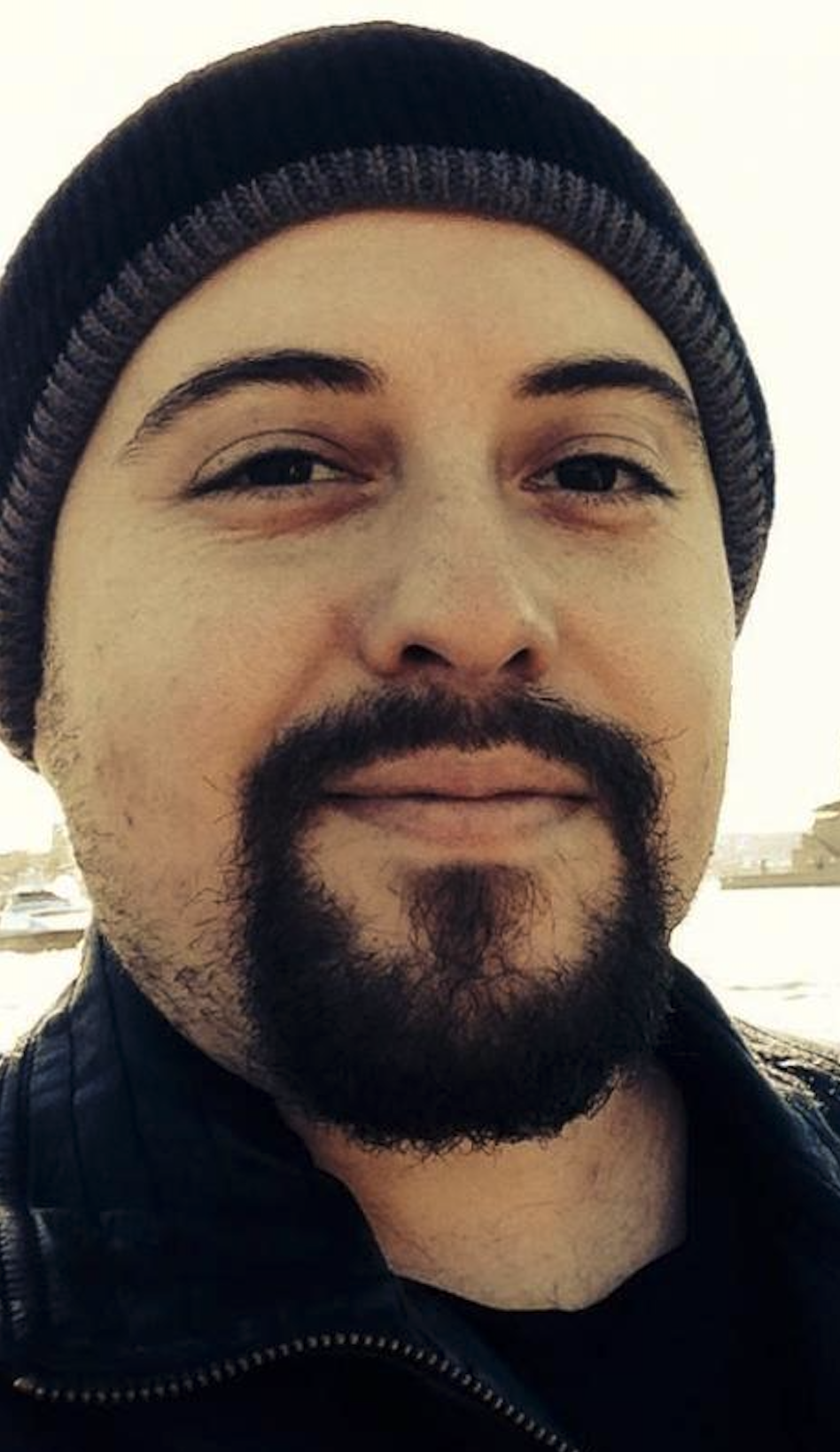
Dr Gávi Ansara (He/him) (Convenor) (PhD Psychol, MCouns, MSc, BA, CCTP-II, AAGSRDT)
Dr Gávi lives and works on unceded Wurundjeri Country, Kulin Nations. He contributes to Pay the Rent and several Aboriginal-led initiatives for reparations, truth-telling, treaty, healing, and justice. He is a Registered Clinical Family Therapist, PACFA-Registered Clinical Psychotherapist and Accredited Clinical Supervisor, and polycule-centred Clinical Relationship Counsellor. He has specializations in complex trauma and dissociation, B/I/POC-centered ecotherapy, neurodivergent-affirming practice, intersex-centered practice, non-binary and binary trans-centered practice, queer and D/s kinships, polyamorous and multi-partner relationships, family and partner violence, polycultural and creative arts approaches, grief and loss, family and community trauma, supporting people seeking asylum, and trauma-and-violence-informed group facilitation.
Gávi is an Advanced Accredited Gender, Sex, and Relationship Diversities Therapist (AAGSRDT) whose undergraduate work had a focus on anti-racist, African-led, and Black-led approaches to community wellbeing. He is a founding director and learning facilitator at the Centre for Liberating Practices, a non-violent virtual hub for challenging oppressions and cultivating communities. He has worked for over 20 years alongside people and communities with lived experience of oppression. He serves as Senior Clinical Supervisor (multi-site contractor) with QLife, a free, anonymous LGBTIQ+ peer support and referral service, and Convenor of PACFA’s Diversity in Gender, Body, Kinship, and Sexuality (GBKS) Leadership Group team. He has published widely in peer-reviewed publications. He received the UK Higher Education Academy’s National Psychology Postgraduate Teaching Award for excellence in teaching psychology, the American Psychological Association’s Transgender Research Award for original, significant research, and the University of Surrey Vice Chancellor’s Alumni Achievement Award for outstanding contributions to international human rights and social justice.
Positioning reflection: Gávi is a multilingual, mixed polycultural, polyamorous, neurodivergent, polyennic, and queer androsexual man of faith from multiple racialized cultural backgrounds who grew up in urban and rural China, the Eora Nation, and elsewhere. He has multiple names in multiple languages; they are all his “real” names. Gávi has lived experience of chronic pain, multiple disabilities, homelessness, migration, intergenerational forced displacement, poverty, and being targeted for white supremacist racist violence and for gender, body, kinship, and sexuality violence. He is also of Deaf lived experience and influenced by Deaf Pride; although currently hearing, he retains beneficial influences from Deaf cultures.
He strives for accountable solidarity regarding his literacy, sighted, hearing, speaking, educational, allistic (non-Autistic), binary gender, citizenship, situationally lighter-skinned, singleton (not a plural person), and non-Aboriginal privileges. Gávi's more detailed positioning reflection acknowledging the intersections of his privileges, affinities, and marginalized lived experiences is available here: https://ansarapsychotherapy.com/positioning/